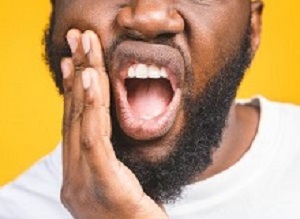 Elite athletes have high rates of oral disease despite brushing their teeth more frequently than most people, finds a new University College London (UCL) study. The findings highlight potential for improvement as most of the athletes expressed an interest in changing their oral hygiene behaviour to improve their oral health.
Elite athletes have high rates of oral disease despite brushing their teeth more frequently than most people, finds a new University College London (UCL) study. The findings highlight potential for improvement as most of the athletes expressed an interest in changing their oral hygiene behaviour to improve their oral health.
The UCL Eastman Dental Institute research team surveyed 352 Olympic and professional athletes across 11 sports, including cycling, swimming, rugby, football, rowing, hockey, sailing and athletics, when they provided dental check-ups for male and female athletes measuring tooth decay, gum health and acid erosion. The researchers also asked athletes what they did to keep their mouth, teeth and gums healthy.
The dental check-ups revealed substantial amounts of oral disease as reported in a 2018 paper, finding that nearly half (49.1%) had untreated tooth decay, the large majority showed early signs of gum inflammation, and almost a third (32%) reported that their oral health had a negative impact on their training and performance.
Elite athletes have poor oral health despite their efforts to care for their teeth: this new study found that 94% reported brushing their teeth at least twice a day, and 44% reported regularly cleaning between their teeth (flossing) – substantially higher figures than for the general population (75% for twice-daily brushing and 21% for flossing).
The researchers found that the athletes regularly use sports drinks (87%), energy bars (59%) and energy gels (70%), which are known to damage teeth.
“We found that a majority of the athletes in our survey already have good oral health related habits in as much as they brush their teeth twice a day, visit the dentist regularly, don’t smoke and have a healthy general diet,” said researcher Dr Julie Gallagher (UCL Eastman Dental Institute Centre for Oral Health and Performance).
“However, they use sports drinks, energy gels and bars frequently during training and competition; the sugar in these products increases the risk of tooth decay and the acidity of them increases the risk of erosion. This could be contributing to the high levels of tooth decay and acid erosion we saw during the dental check-ups.”
The study builds on research carried out by the centre since the London 2012 Olympics, led by Professor Ian Needleman. Previous findings have suggested that elite athletes may also face an elevated risk of oral disease from a dry mouth during intensive training.
Encouragingly, the surveyed athletes said they would consider adopting even better oral hygiene habits to tackle this and an intervention study has already been piloted. Gallagher said: “Athletes were willing to consider behaviour changes such as additional fluoride use from mouthwash, more frequent dental visits, and reducing their intake of sports drinks, to improve oral health.”
“We subsequently asked some of them and support team members to help us design an oral health intervention study, based on contemporary behaviour change theory and we will publish the results soon.”
The Centre for Oral Health and Performance is recognised by the International Olympic Committee as an IOC Research Centre for Prevention of Injury and Protection of Athlete Health, jointly with the Institute of Sport, Exercise and Health and the National Centre for Sport Exercise and Health.
Abstract
Background: In elite sport, the protection of an athlete's health is a priority. However, research indicates a substantial prevalence of oral disease in elite and professional athletes. The challenges to oral health from participation in sport require investigation to identify effective strategies and mitigate risk.
Aim: To explore athlete-reported oral health behaviours, risks and potential for behaviour change in a representative sample of elite athletes based in the UK.
Method: This was a cross-sectional study. We provided oral health screening for 352 elite and professional athletes from June 2015 to September 2016; 344 athletes also completed a questionnaire.
Results: The median age was 25 years (range 18-39) and 236 (67%) were male; 323 (94.2%) said they brush twice daily while 136 (40%) said their most recent dental attendance was within the previous six months. Ninety-seven (28%) would be assessed as high consumers of sugar in their regular diet. The use of sports nutrition products was common with 288 (80%) reporting the use of sports drinks during training or competition but were positive about behaviour changes.
Conclusion: Despite reporting positive oral health-related behaviours, athletes have substantial amounts of oral disease. Athletes are willing to consider behaviour change related to daily plaque removal, increased fluoride availability and regular dental visits to improve oral health.
Authors
Julie Gallagher, Paul Ashley, Aviva Petrie, Ian Needleman
[link url="https://www.ucl.ac.uk/news/2019/aug/elite-athletes-have-poor-oral-health-despite-brushing-twice-daily"]University College London material[/link]
[link url="https://www.nature.com/articles/s41415-019-0617-8"]British Dental Journal abstract[/link]
